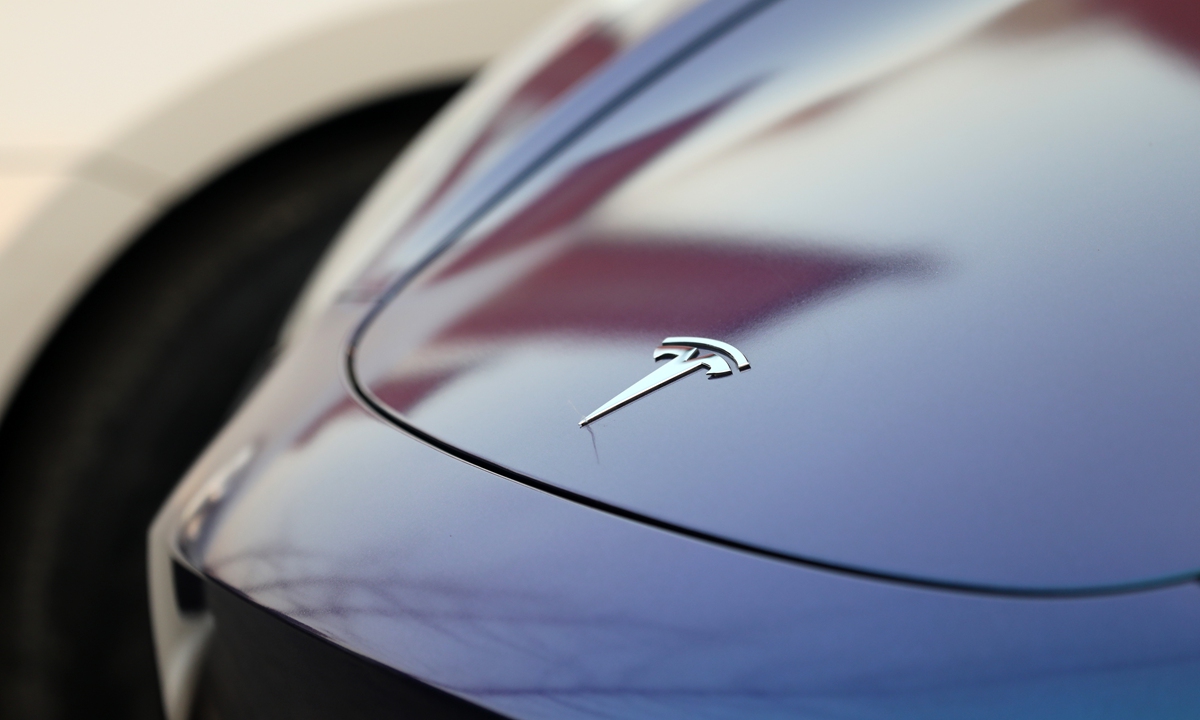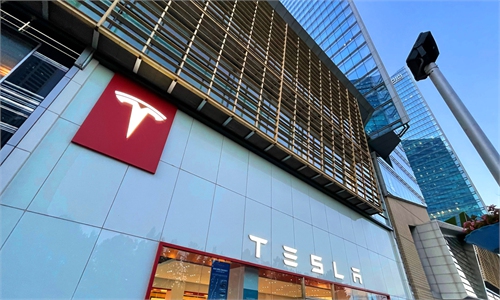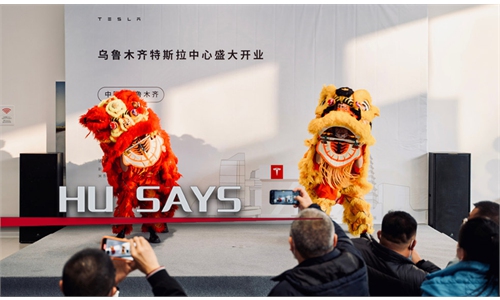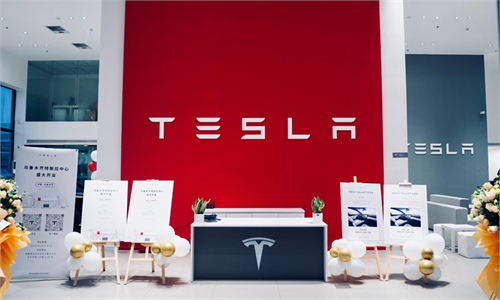COMMENTS / EXPERT ASSESSMENT
Biz Quick Take: Tesla must ignore hysteria over Xinjiang showroom

Photo: VCG
US electric carmaker Tesla's recent move to open a showroom in Northwest China's Xinjiang Uygur Autonomous Region has, quite predictably, unleashed a fresh wave of hysteria among some radical anti-China politicians and groups in the US, which threw some very nasty allegations against the company and its CEO, Elon Musk.
US Senator Marco Rubio, who has nothing else to show for as a politician but his radical anti-China stances, led the charge accusing the company of helping to "cover up genocide and slave labor."
The Washington-based Council on American-Islamic Relations directly called on Musk to close the showroom in Xinjiang. Scott Paul, President of the Alliance for American Manufacturing, went further and claimed that any company doing business in Xinjiang would be "complicit in the cultural genocide."
First and foremost, claims of "genocide" and "forced labor" are outright lies that have been thoroughly debunked. At this point, the only people who still believe and push such claims are anti-China radicals in the US like Rubio. They are trying to cling onto these fear-mongering lies to incite hatred toward China and push for a so-called China-US decoupling.
But lies will always be lies, no matter how many times they are repeated. Lies will not change the remarkable social and economic development of Xinjiang over the years, which is exactly why the region is so attractive to domestic and foreign businesses like Tesla. What these lies do, however, is exert pressure on the US and other countries' multinationals, which are forced to make business decisions on political and ideological basis.
Certainly, within the current US toxic political environment, Tesla and Musk will likely face criticism from radical US politicians and groups for some time. The company is understandably in a tough spot but it should also be fully aware of what will happen in the Chinese market if it gives in to pressure from a few anti-China forces and changes its decision. It is hoped that Tesla will ignore such hysteria from radical forces and continue its normal business operations in China.
Recently, as Washington moves to step up its accusations and actions against Xinjiang, several US companies have been dragged into political storms. US chipmaker Intel apologized after its letter, urging suppliers to avoid products and labor from Xinjiang, prompted a widespread backlash from the Chinese public. US retailer giant Walmart is also facing harsh criticism after some consumers found some stores removed Xinjiang products from shelves.
It must be pointed out that it is the US government, politicians and groups that set US companies up for setbacks in the Chinese market. It is the US government that is issuing bans on businesses, not the Chinese government. What the Chinese government has done is continuously improving business conditions for foreign companies, including those from the US, through opening-up measures.
Still, that does not mean foreign businesses are allowed to appease anti-China forces, while completely disregarding Chinese national interests and the feelings of Chinese consumers. This requires multinationals to have a better judgment of the nature of their decisions, whether they are based on the truth or on political and ideological bias, and the potential implications.
For any foreign company that has deep ties in the Chinese market, it should not be hard to recognize the lies about Xinjiang and the political motives within the US to spread them. What they need is the wisdom and courage to stand up to such hysterical nonsense.



